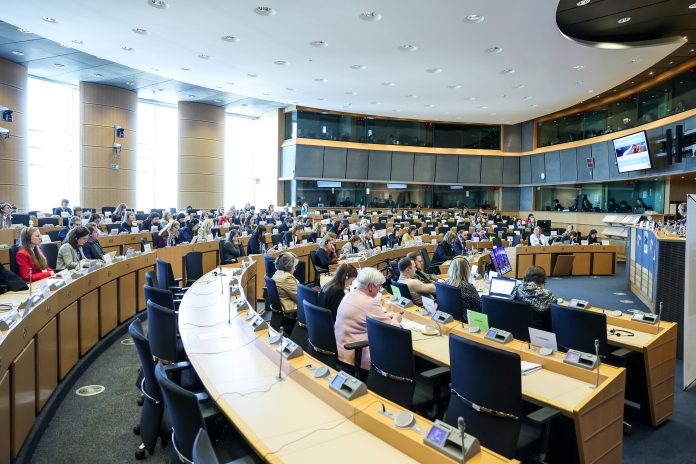MEPs, national MPs and experts discussed the energy crisis and how it is affecting women, at an inter-parliamentary committee meeting on Wednesday.
The annual inter-parliamentary committee meeting marking International Women’s Day (8 March) brings together MEPs and national MPs to discuss gender equality and women’s rights. This year’s theme was the gender aspects of energy poverty.
Opening the meeting, Women’s Rights and Gender Equality Committee Chair Robert Biedroń (S&D, PL) said: “The EU is facing the growing, persistent, and daunting challenge of energy poverty, with an estimated 125 million citizens affected. This cost-of-living crisis negatively impacts women’s economic and social inclusion, health, risk of domestic violence, and their fundamental rights. Of those who are most vulnerable, we know that single mothers and single women are more likely than men to struggle with paying their energy bills, with around half of single mothers and one-third of single women facing the greatest difficulties.”
In his introductory remarks, Dimítrios Papadimoulis (The Left, EL), Vice-President of the European Parliament responsible for gender equality and diversity, said: “What can we do at European level to deal with this crisis? To tackle the pandemic, we created NextGenerationEU. Now we need new tools to handle energy poverty. This meeting will help us work out what we can do better together to provide services to the most vulnerable citizens. We cannot wait any longer; history will not forgive us if we do not act.”
During the panel discussion with experts, Laurence Gillois, Director of UN Women Brussels said women are increasingly active in the energy workforce but they also bear the brunt of energy poverty. Ana Margarida Luís De Sousa, Civil, Mechanical and Petroleum Engineer at the University of Lisbon, added that women must be involved in energy policy and decision-making processes and when designing energy infrastructure. Katharina Habersbrunner, Head of Energy, Climate and Gender Women Engage for a Common Future (WECF), pointed out that aside from the economic perspective, the physiological, health and socio-cultural dimensions of women’s energy poverty need to be considered. Juliana Wahlgren, Director of the European Anti-poverty Network (EAPN) said energy is a fundamental right but poverty is a structural problem. Emergency measures are not taking into account structural inequality. Finally, Director of the European Institute for Gender Equality (EIGE), Carlien Scheele called for the many gender-mainstreaming tools available to be used by the EU and national decision makers.
MEPs and national MPs raised caps on tariffs, taxes on the windfall profits of energy companies, housing insulation, unpaid care work and asked why, given the facts about women’s energy poverty, more is not being done. All experts agreed that more gender-disaggregated data are needed and called for solutions such as the Green Deal to be more socially just.

